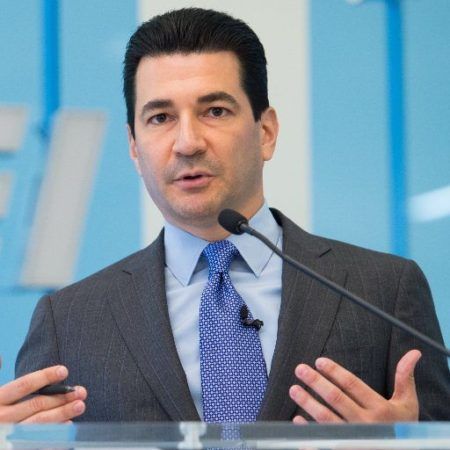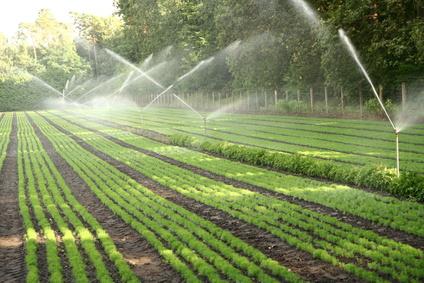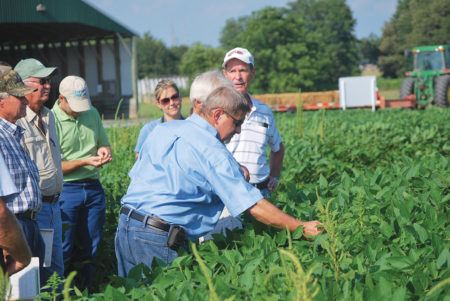FDA Commissioner Announced a Four Year Delay in Implementing Some Produce FSMA Rules
 In a speech in front of National Association of State Departments of Agriculture (NASDA), Dr. Scott Gottlieb,the FDA commissioner outlined some immediate steps to facilitate the implementation of the Produce Safety Rule established by the FDA Food Safety Modernization Act (FSMA).
In a speech in front of National Association of State Departments of Agriculture (NASDA), Dr. Scott Gottlieb,the FDA commissioner outlined some immediate steps to facilitate the implementation of the Produce Safety Rule established by the FDA Food Safety Modernization Act (FSMA).
Dr. Gottlieb claims that since being in his post, he gained a deeper appreciation for the challenges and complexity that the globalized farming community is facing.
Agricultural Water Compliance Dates
He announced that the FDA issued a proposed rule that, if finalized, would extend the compliance dates for the agricultural water requirements by an additional two to four years (for produce other than sprouts). The new agricultural water compliance date the FDA is proposing for the largest farms is January 26, 2022. Small farms would have until January 26, 2023, and very small farms January 26, 2024.
Sprouts, because of their unique vulnerability to contamination, remain subject to applicable agricultural water requirements in the final rule and their original compliance dates.

He agreed that “microbial quality standards for agricultural water are too complicated, and in some cases too costly, to be effectively implemented.” Dr. Gottlieb also announced that “our intention to explore ways to simplify our approach to make compliance less burdensome and less costly, while still being protective of public health.”
To give the agency and the farmers more time, he is issuing an extension in the compliance dates” for the agricultural water requirements of the produce rule for non-sprout produce by an additional two to four years. This way the earliest non-sprout compliance date for the water standards won’t be until January 2022.”
The proposed extension will give the agency time to take another look at the water standards to ensure that they are feasible for farmers in all regions of the country while protecting public health. The agency has also increased the number of methods that can be used for water testing in agricultural water.
Educational Efforts
Dr. Gottlieb declared that the agency has recognized a need for additional efforts to educate the produce industry and state regulatory agencies on the new produce safety requirements, and will continue its focus on training, guidance development, and outreach over the next year. This is particularly important since the nation’s farming community has not previously been  subject to this kind of oversight.
subject to this kind of oversight.
The FDA plans to learn more from farmers, state regulatory partners and other stakeholders about the diverse ways water is used and ensure that the standards will be as practical and effective as possible for all farming operations, during the time extension afforded by the extension.
Produce Inspection
The State Produce Implementation Cooperative Agreement Program that supports 43 states in their development of produce safety programs was awarded $30 million. This funding is in addition to on the nearly $22 million that FDA awarded last year to 42 states to develop produce programs and provide training and technical assistance.
Dr. Gottlieb assured the audiences that routine inspections would not begin until 2019. The additional time should be used to focus on issuing guidance that will be helpful to regulators and farmers.
On Farm Readiness Reviews
The farm readiness review is a voluntary program, where the farms are visited by a team of state officials, cooperative extension agents, and FDA produce experts. The purpose of the visit is to give the farmers information about their readiness to meet the program requirements. The program will also help the FDA to identify training gaps that will be needed to be filled.
Training
Dr. Gottlieb claimed that through Produce Safety Alliance (PSA) 176 farmer training courses had been conducted in 36 states as of June of 2017. More than 1,000 trainers were trained in these courses. NASDA-FDA working group was formed to work on plans for training state and federal inspectors and is finalizing the training modules.
FDA is also working with NASDA to determine the best training platforms for ensuring that cooperative extension agents can have the training they need to be effective. Training of state regulators will be a top priority for the FDA in 2018.
